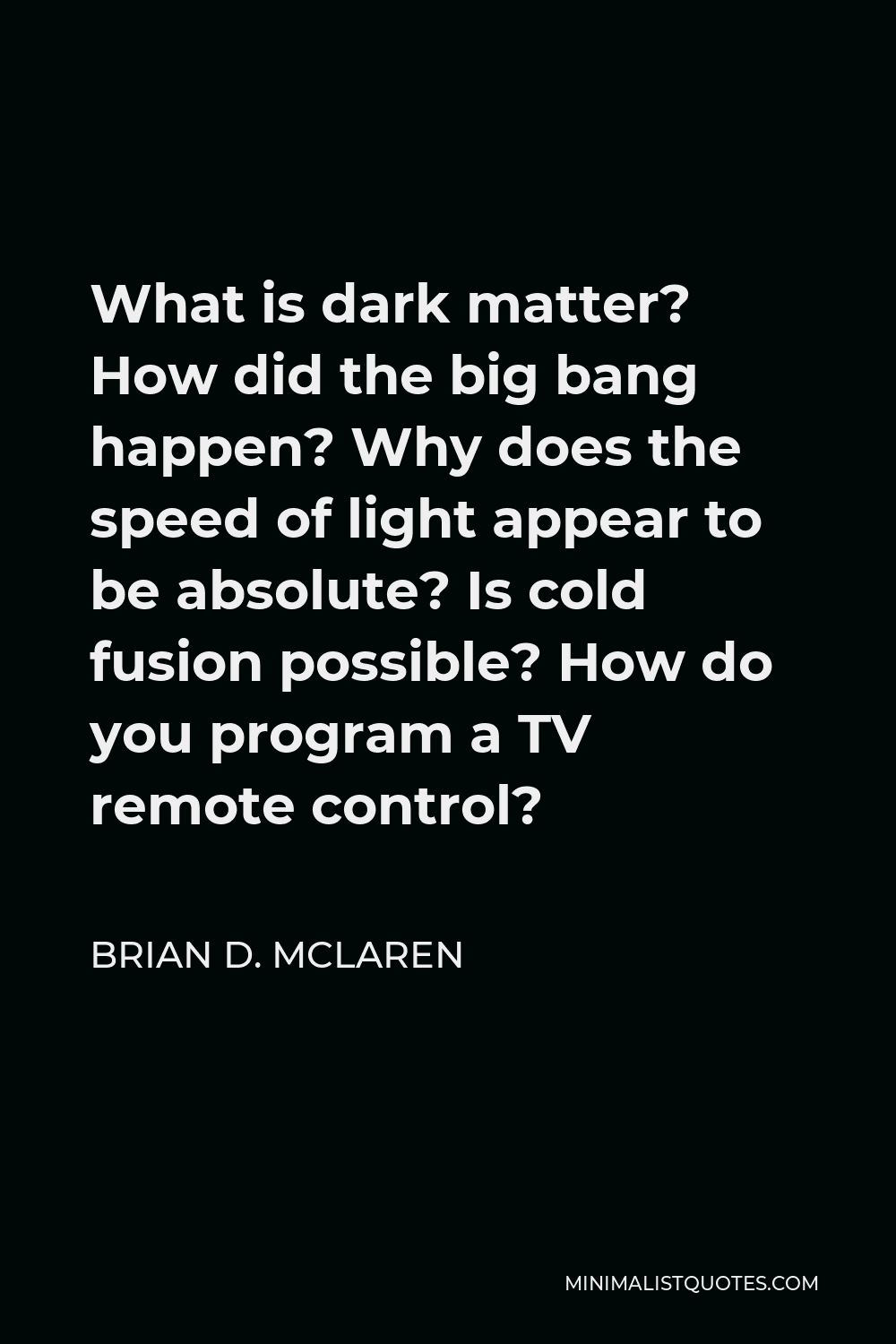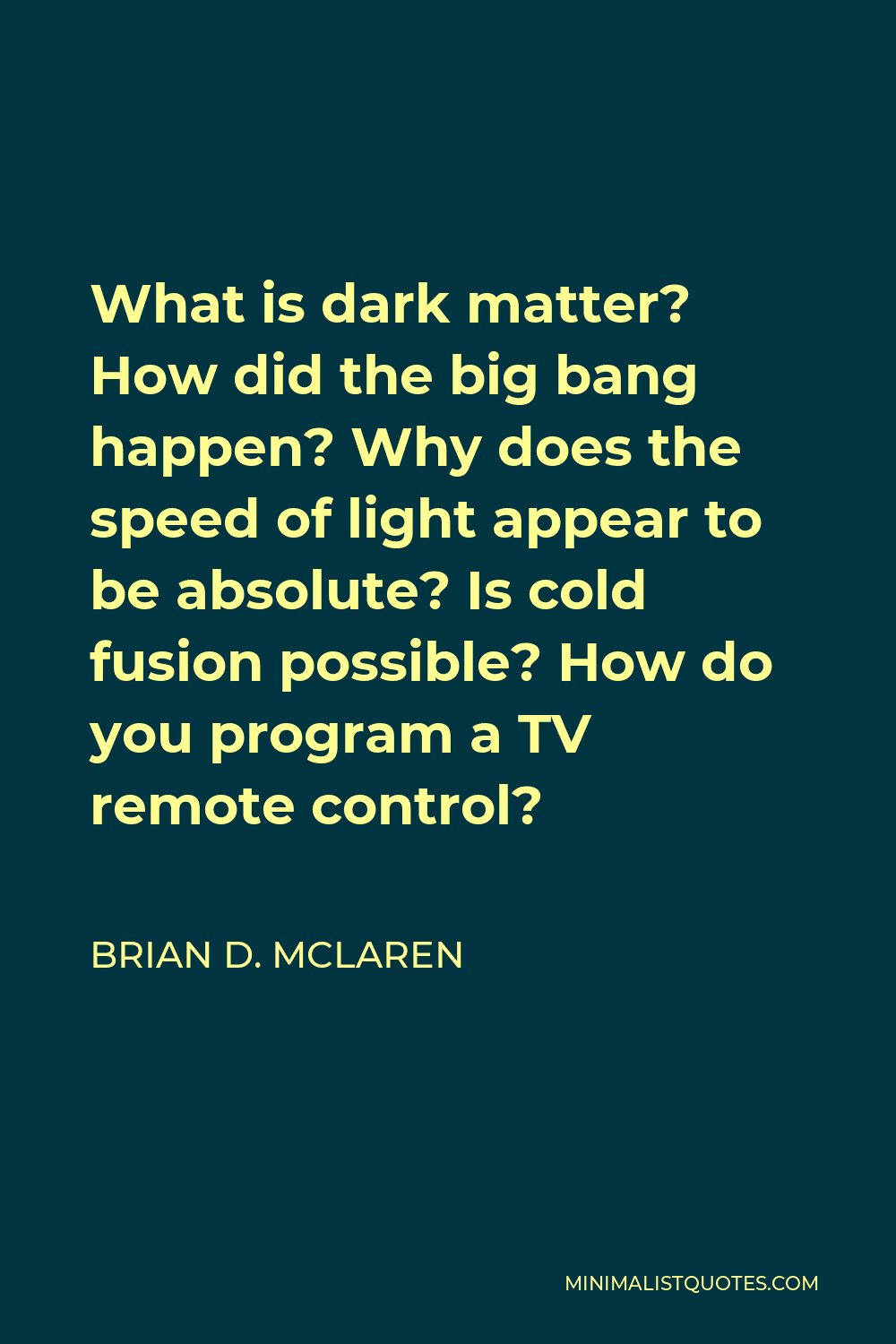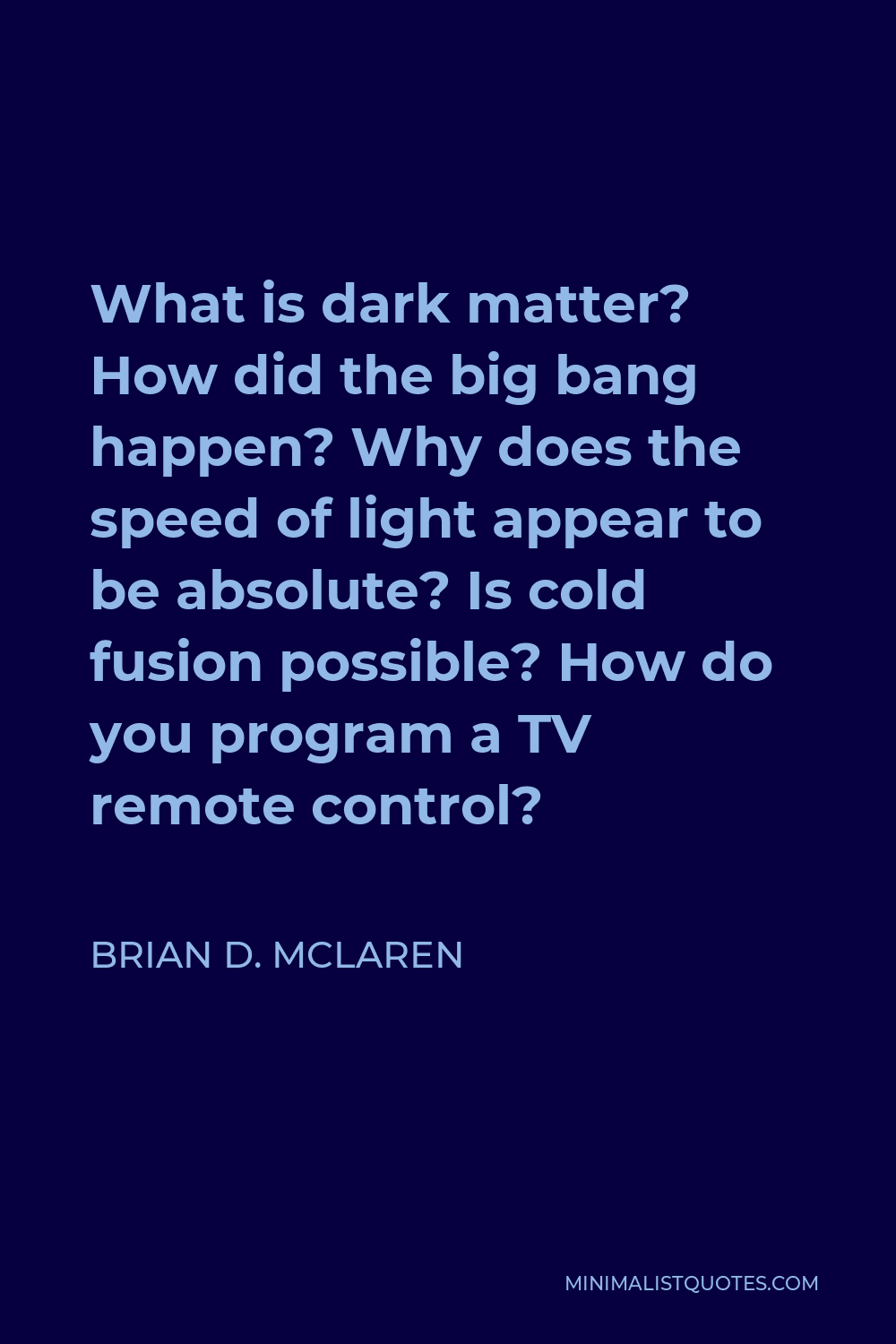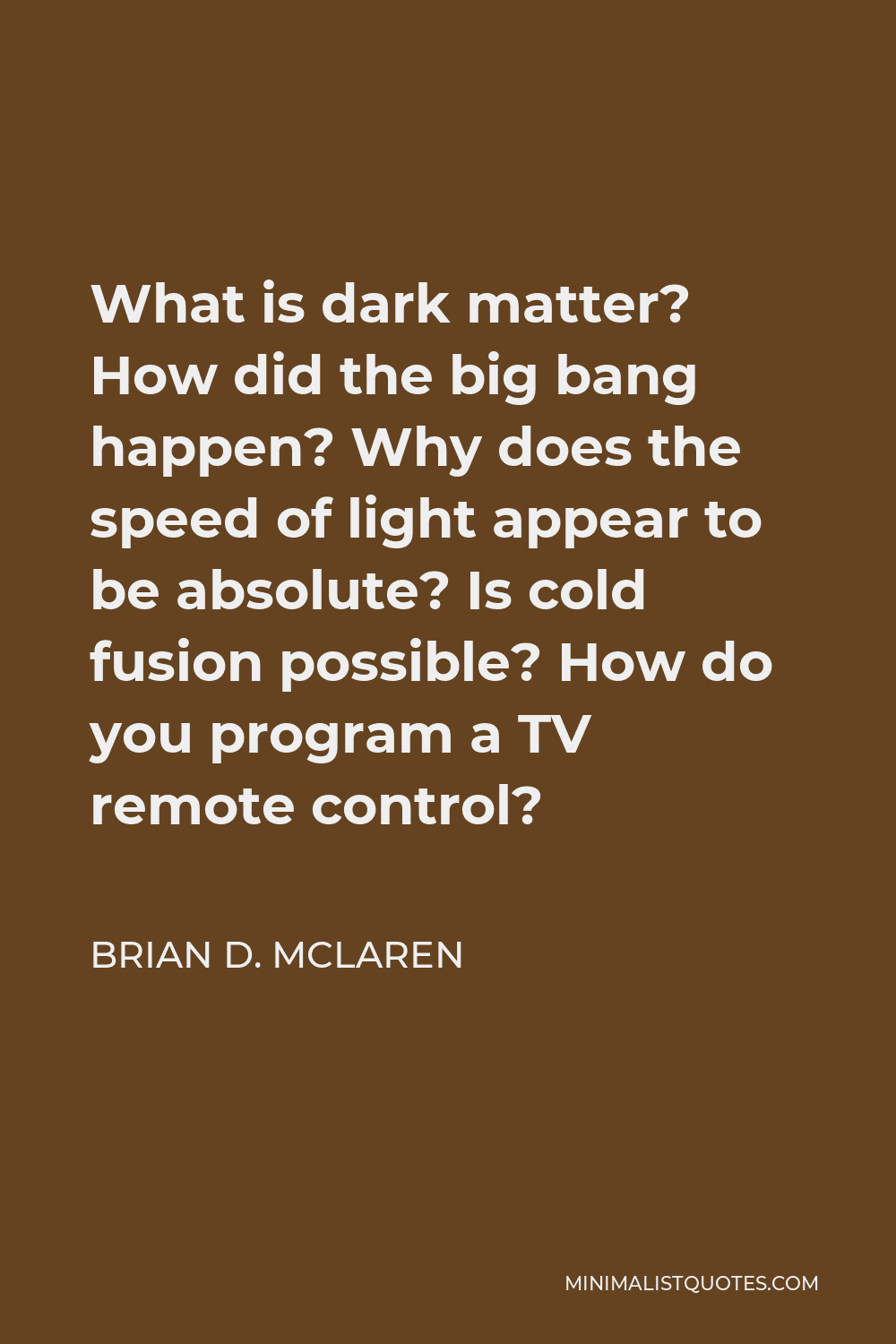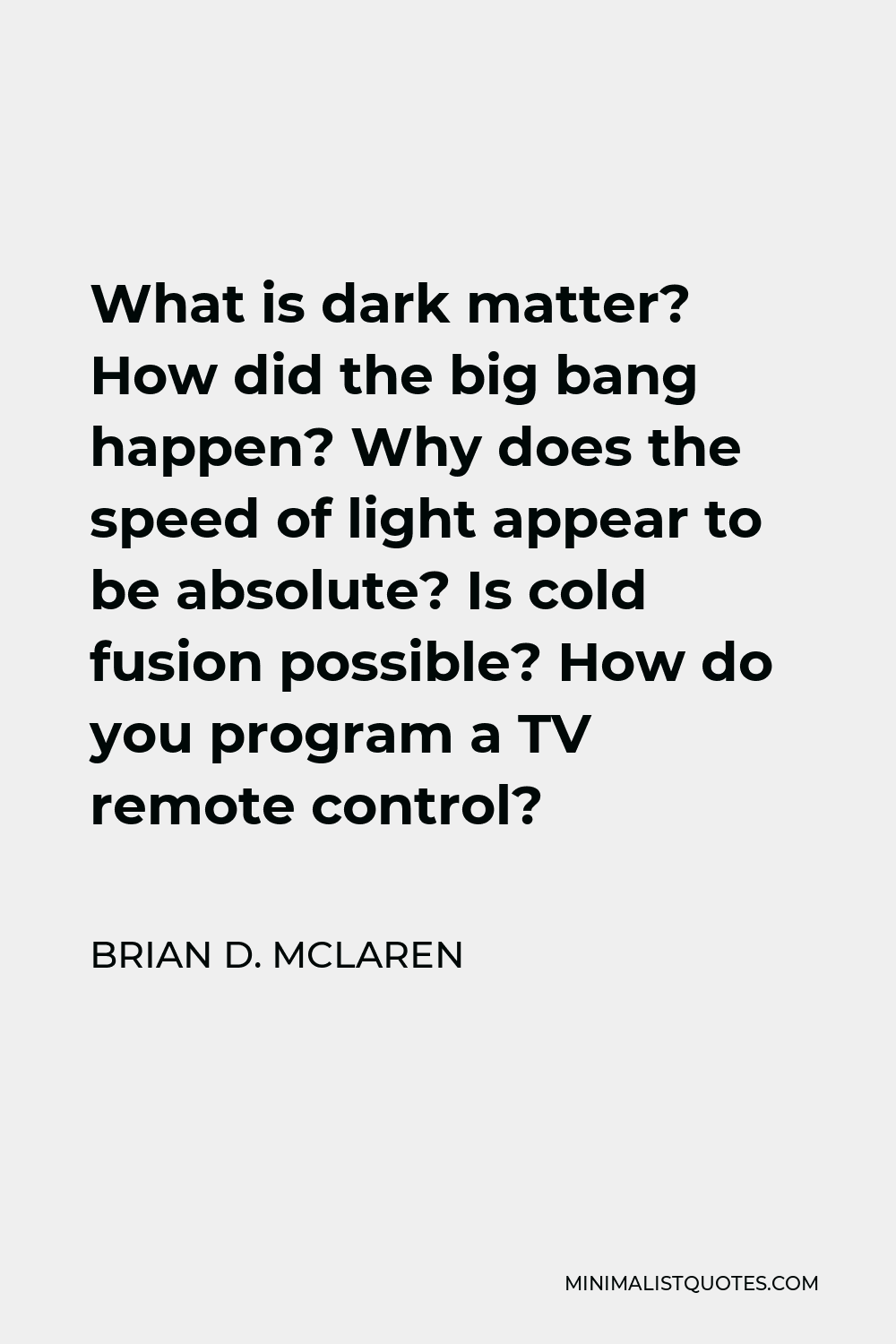To be a Christian in a generously orthodox way is not to claim to have the truth captured, stuffed, and mounted on the wall.
BRIAN D. MCLARENWhat is dark matter? How did the big bang happen? Why does the speed of light appear to be absolute? Is cold fusion possible? How do you program a TV remote control?
More Brian D. McLaren Quotes
-





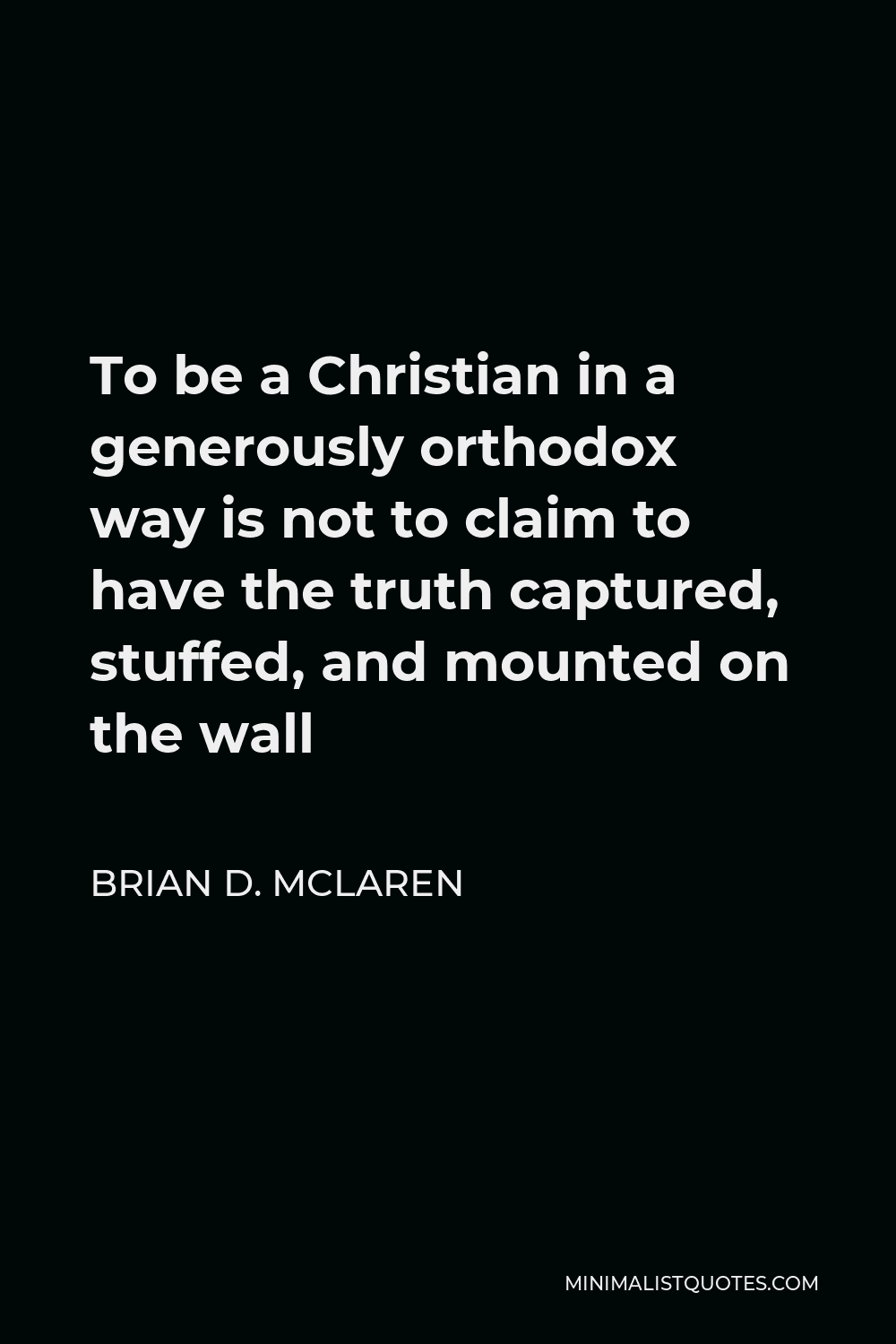
-






I had to face the possibility that the art of living in the way of Jesus was no longer carried on in a holistic way by any single tradition.
BRIAN D. MCLAREN -





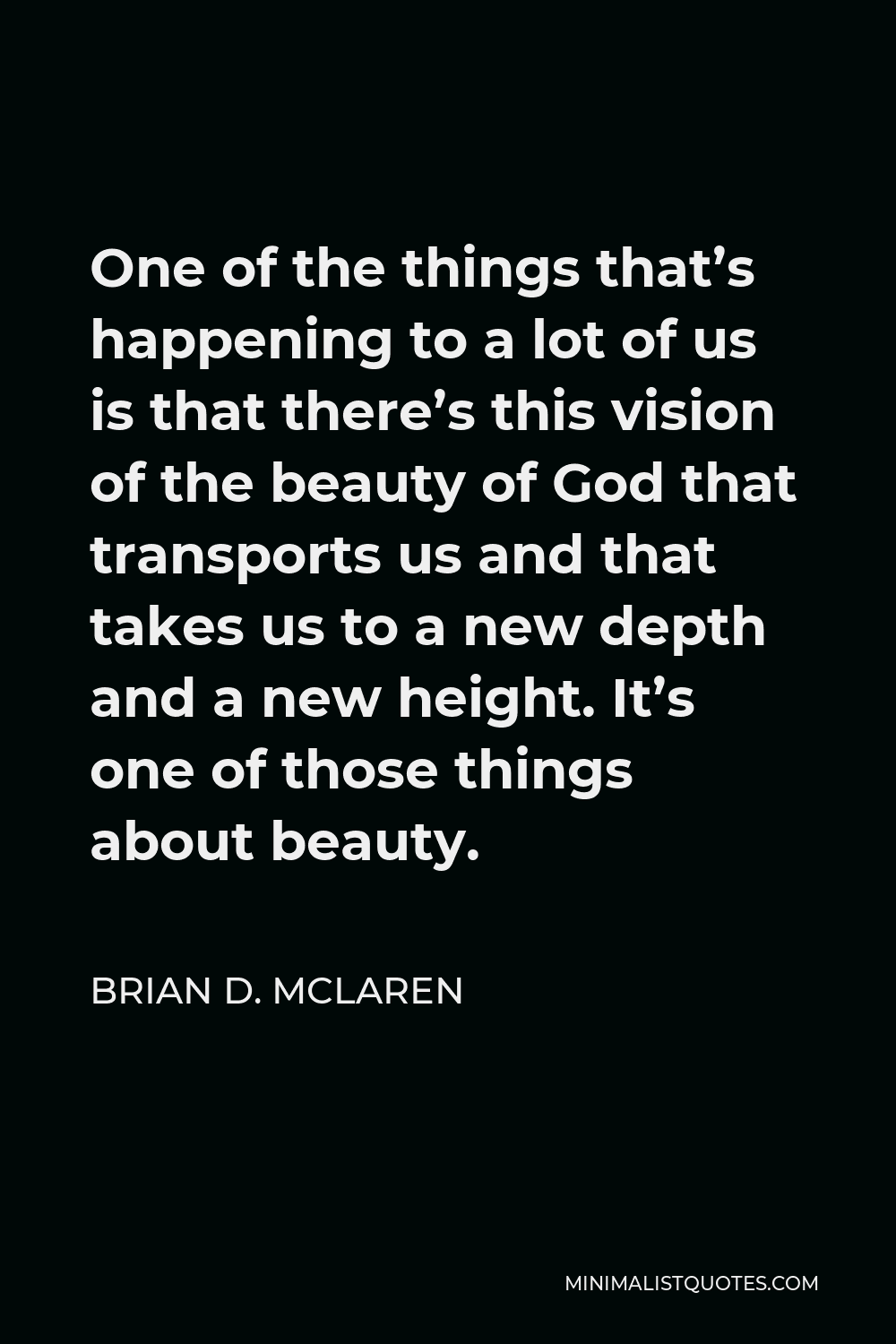
One of the things that’s happening to a lot of us is that there’s this vision of the beauty of God that transports us and that takes us to a new depth and a new height. It’s one of those things about beauty.
BRIAN D. MCLAREN -





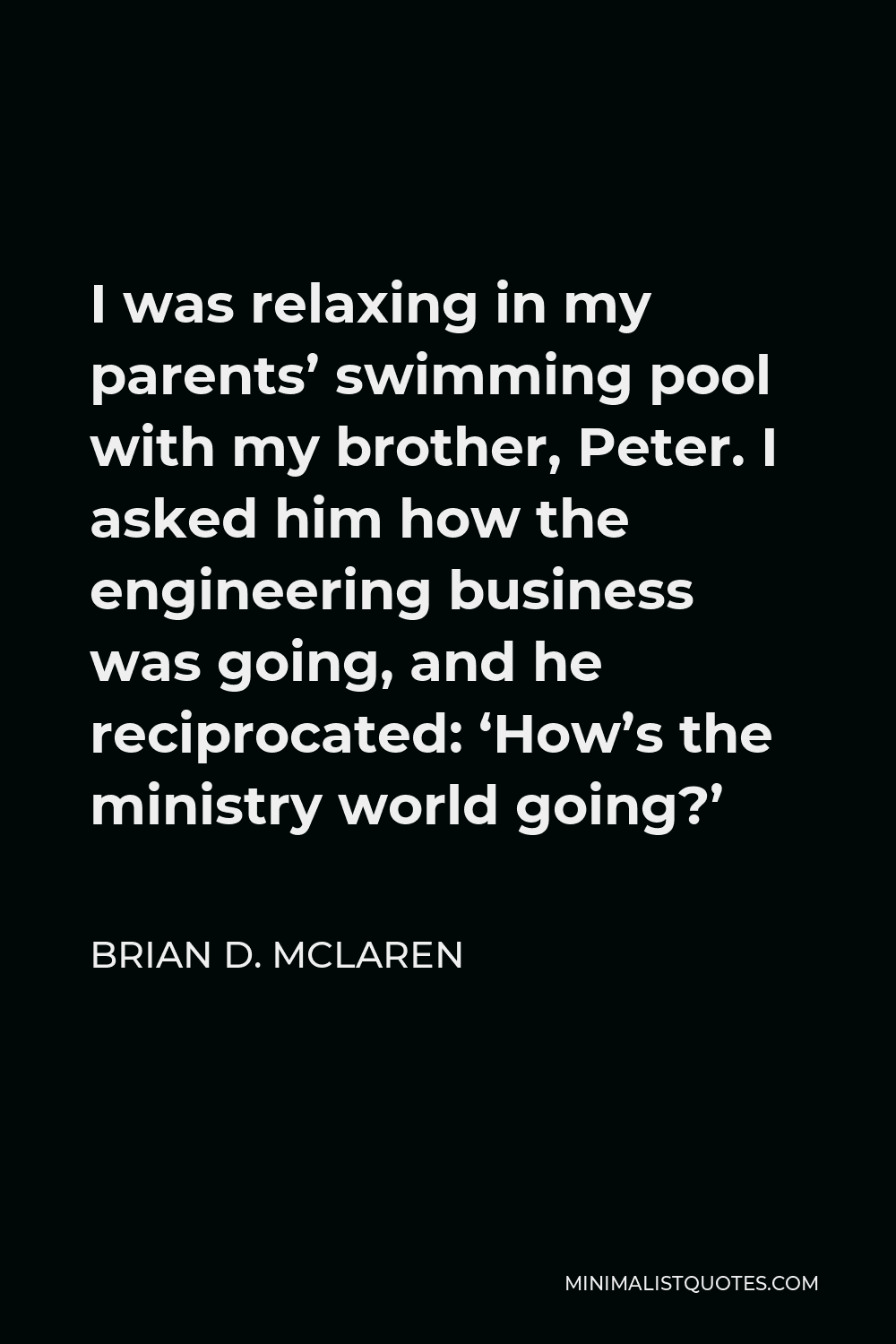
I was relaxing in my parents’ swimming pool with my brother, Peter. I asked him how the engineering business was going, and he reciprocated: ‘How’s the ministry world going?’
BRIAN D. MCLAREN -





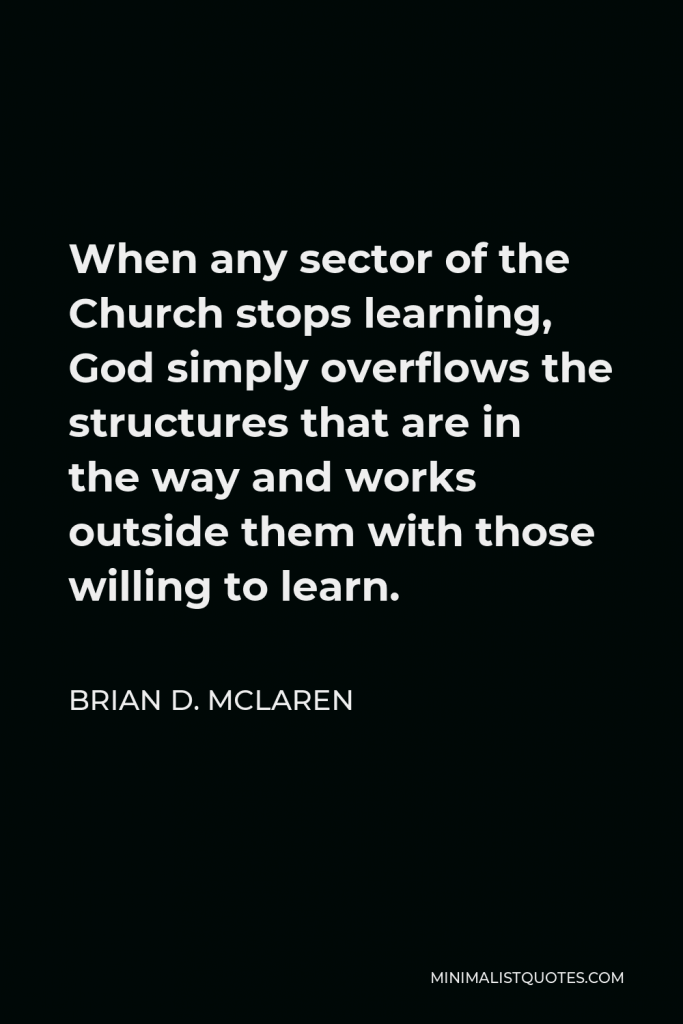

When any sector of the Church stops learning, God simply overflows the structures that are in the way and works outside them with those willing to learn.
BRIAN D. MCLAREN -





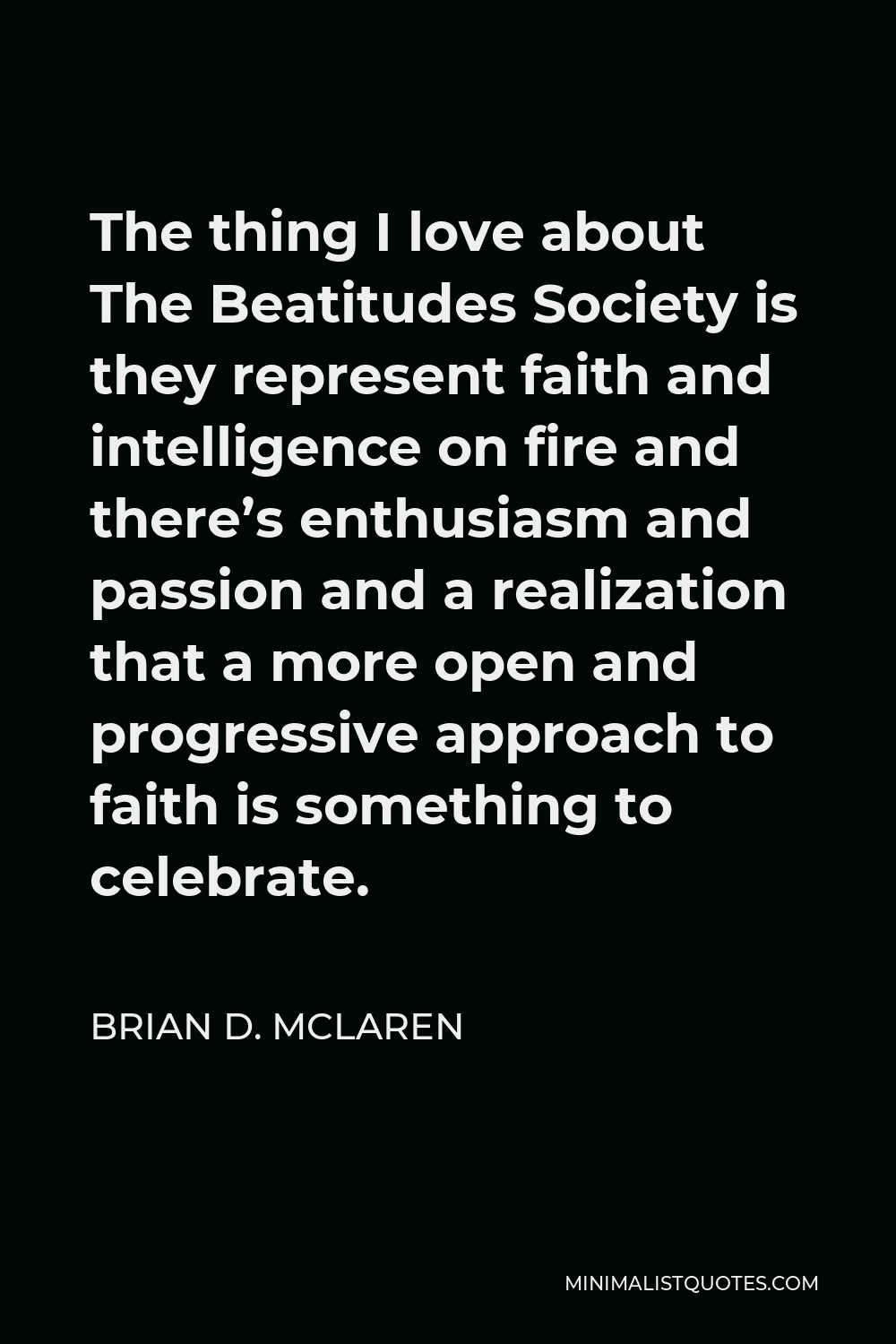
The thing I love about The Beatitudes Society is they represent faith and intelligence on fire and there’s enthusiasm and passion and a realization that a more open and progressive approach to faith is something to celebrate.
BRIAN D. MCLAREN -





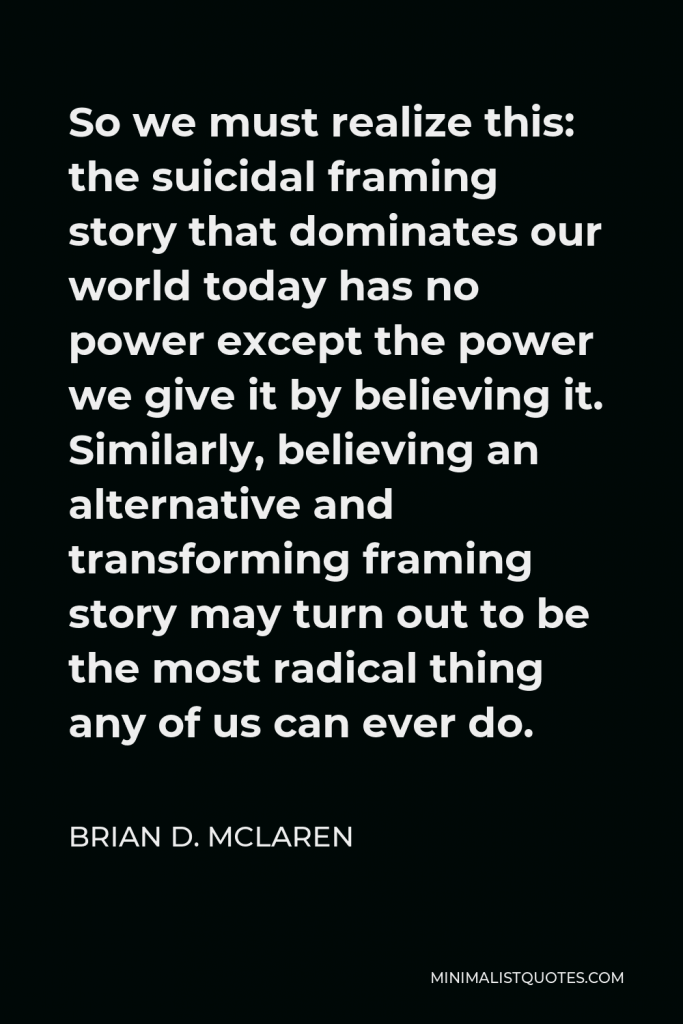

So we must realize this: the suicidal framing story that dominates our world today has no power except the power we give it by believing it. Similarly, believing an alternative and transforming framing story may turn out to be the most radical thing any of us can ever do.
BRIAN D. MCLAREN -





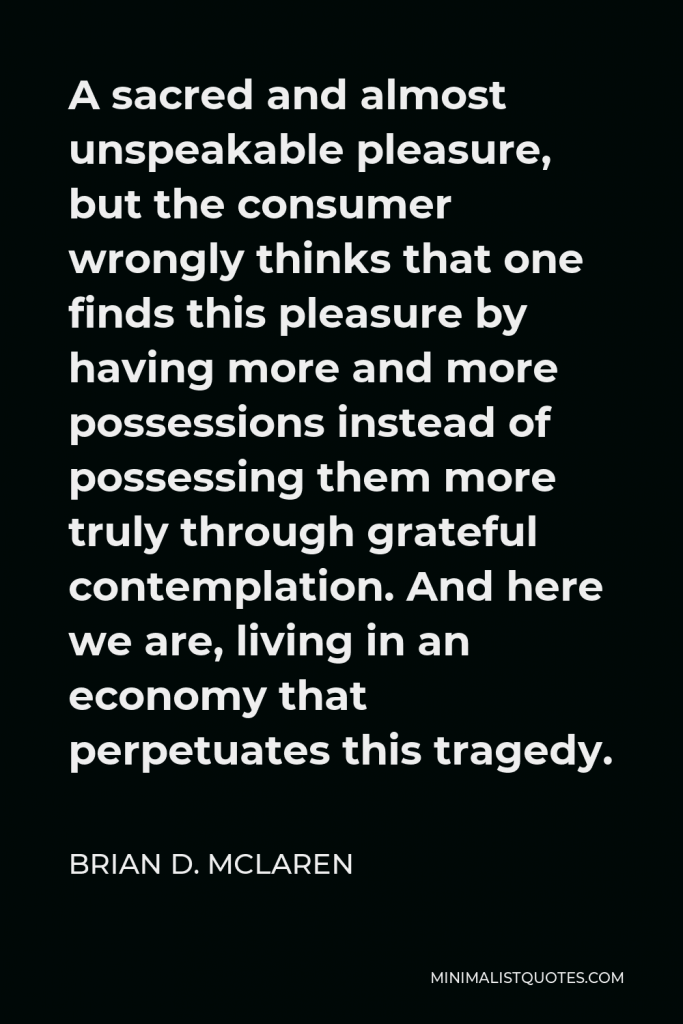

A sacred and almost unspeakable pleasure, but the consumer wrongly thinks that one finds this pleasure by having more and more possessions instead of possessing them more truly through grateful contemplation. And here we are, living in an economy that perpetuates this tragedy.
BRIAN D. MCLAREN -





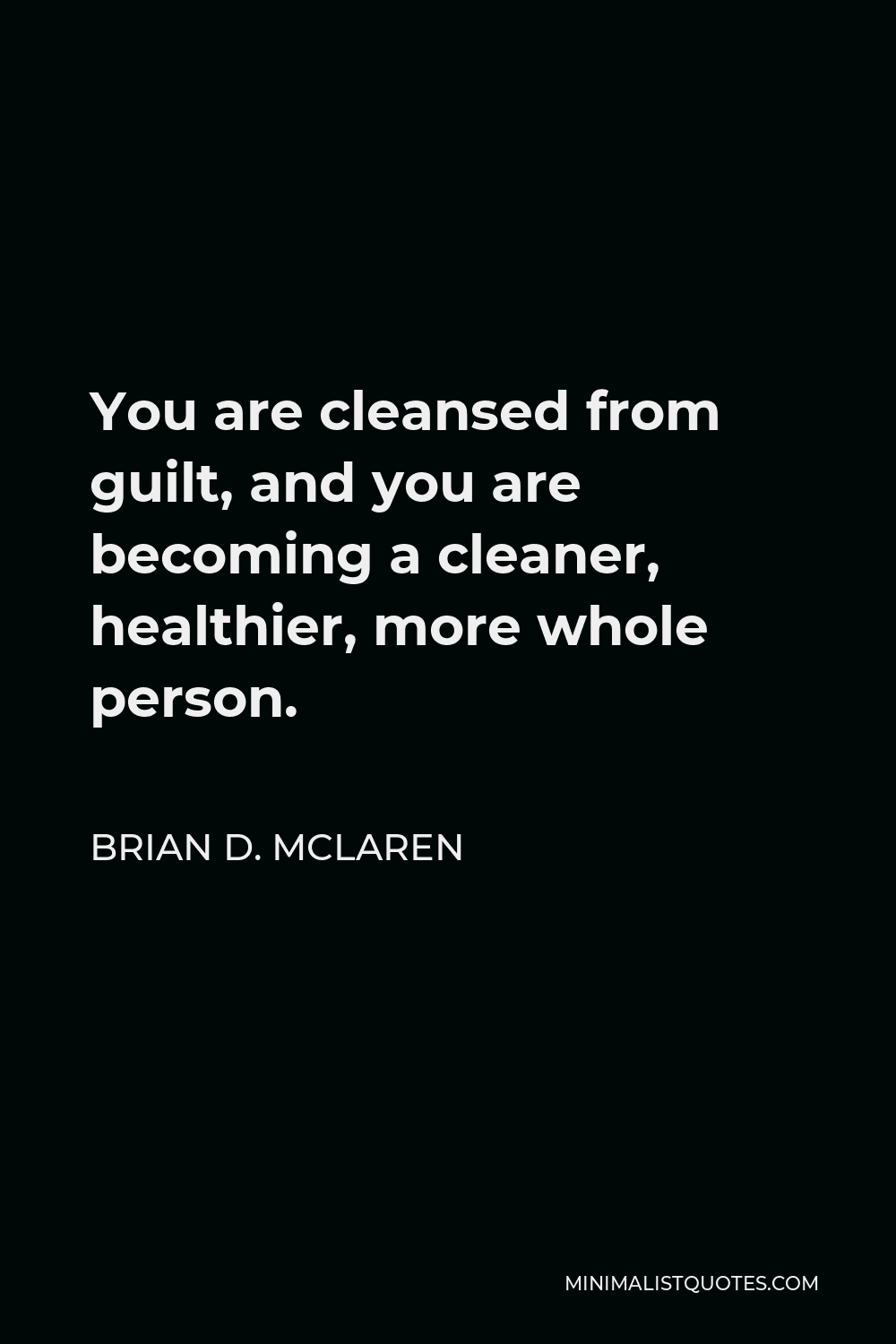
You are cleansed from guilt, and you are becoming a cleaner, healthier, more whole person.
BRIAN D. MCLAREN -





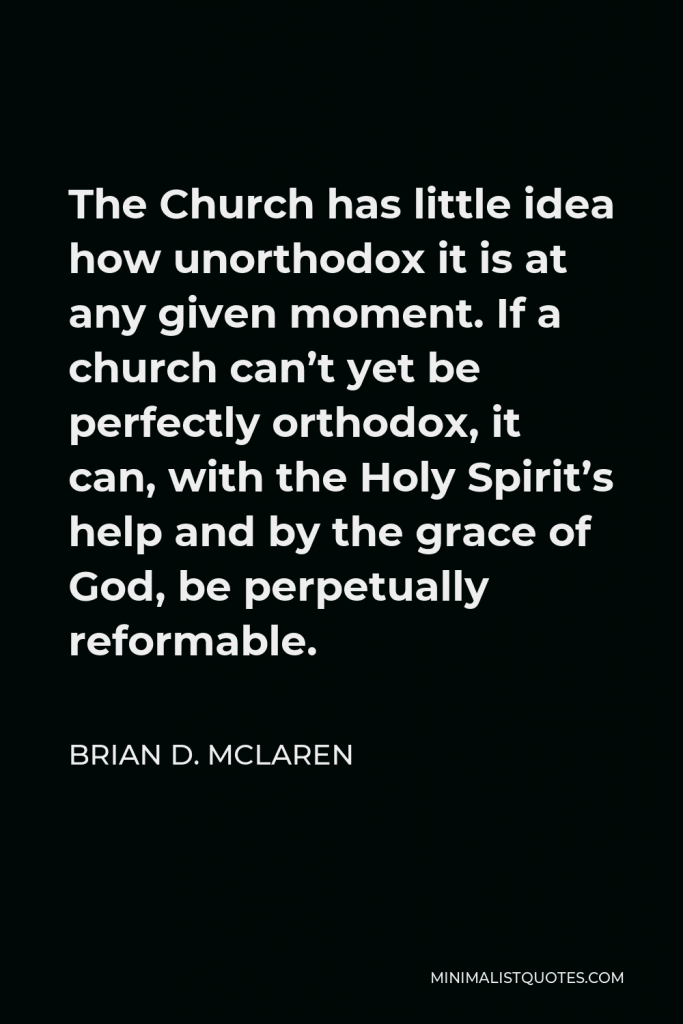

The Church has little idea how unorthodox it is at any given moment. If a church can’t yet be perfectly orthodox, it can, with the Holy Spirit’s help and by the grace of God, be perpetually reformable.
BRIAN D. MCLAREN -





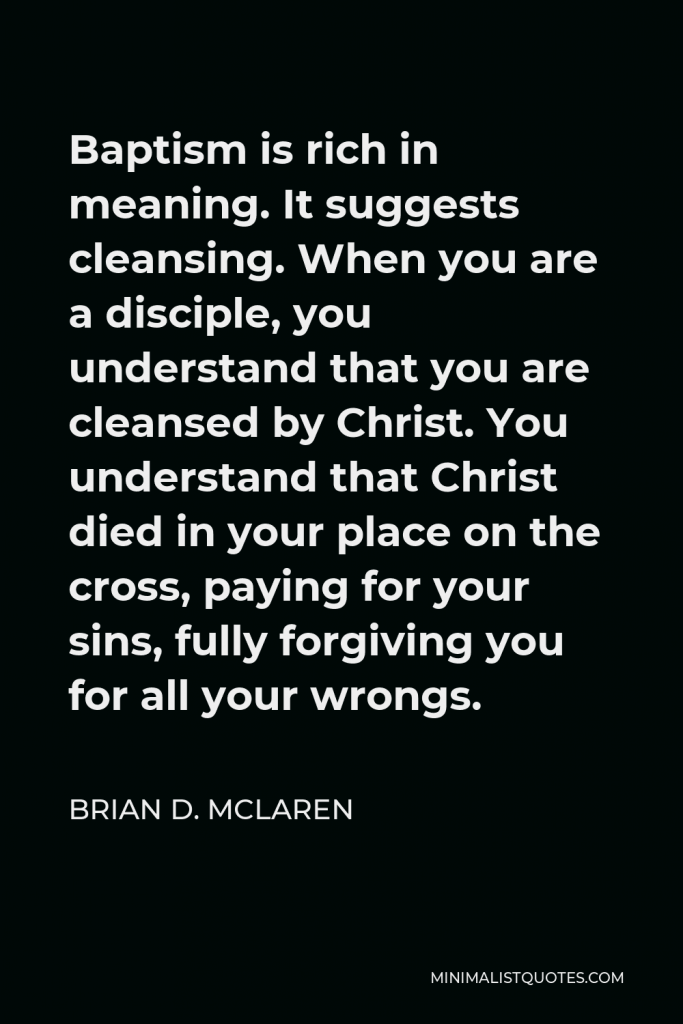

Baptism is rich in meaning. It suggests cleansing. When you are a disciple, you understand that you are cleansed by Christ. You understand that Christ died in your place on the cross, paying for your sins, fully forgiving you for all your wrongs.
BRIAN D. MCLAREN -





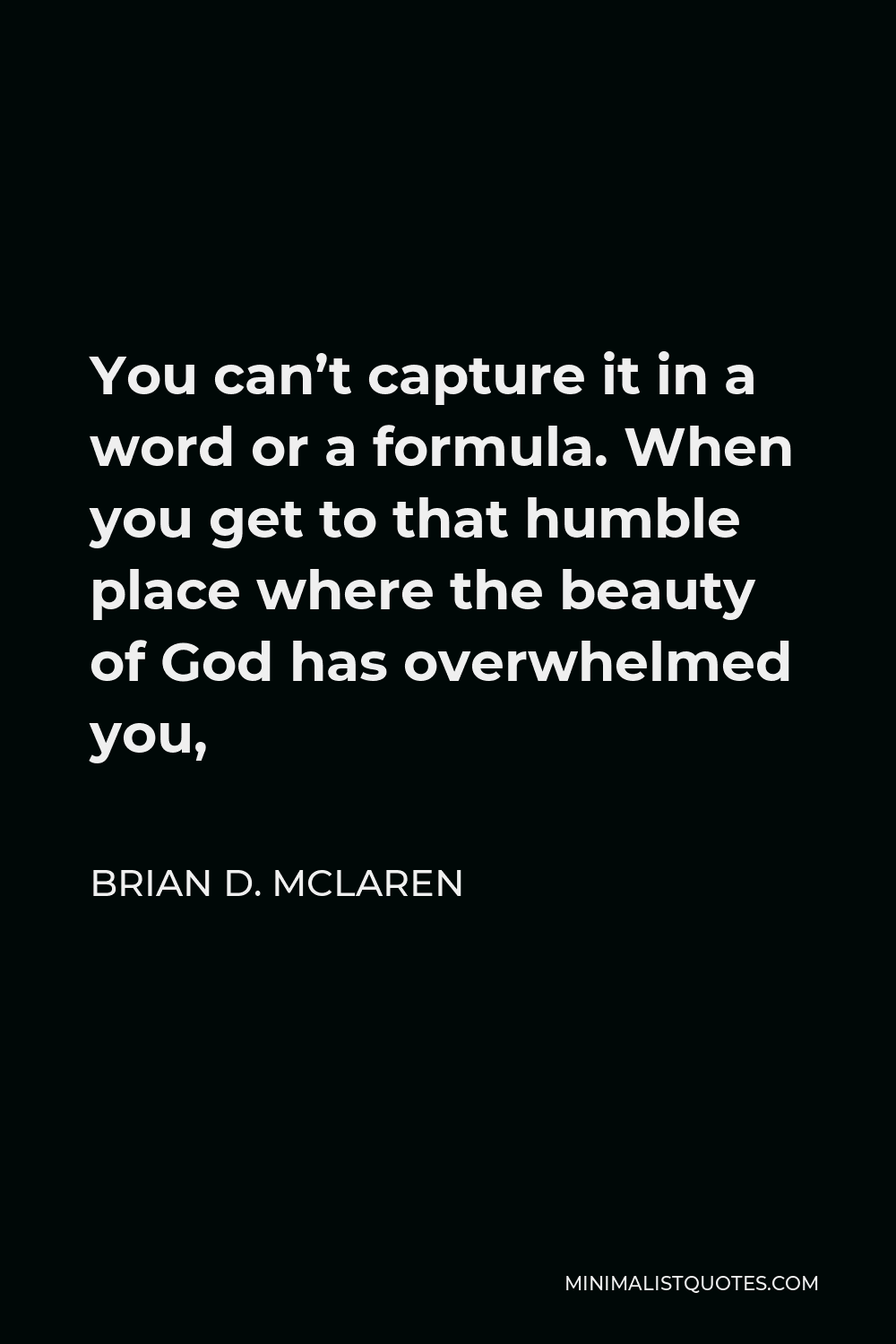
You can’t capture it in a word or a formula. When you get to that humble place where the beauty of God has overwhelmed you,
BRIAN D. MCLAREN -





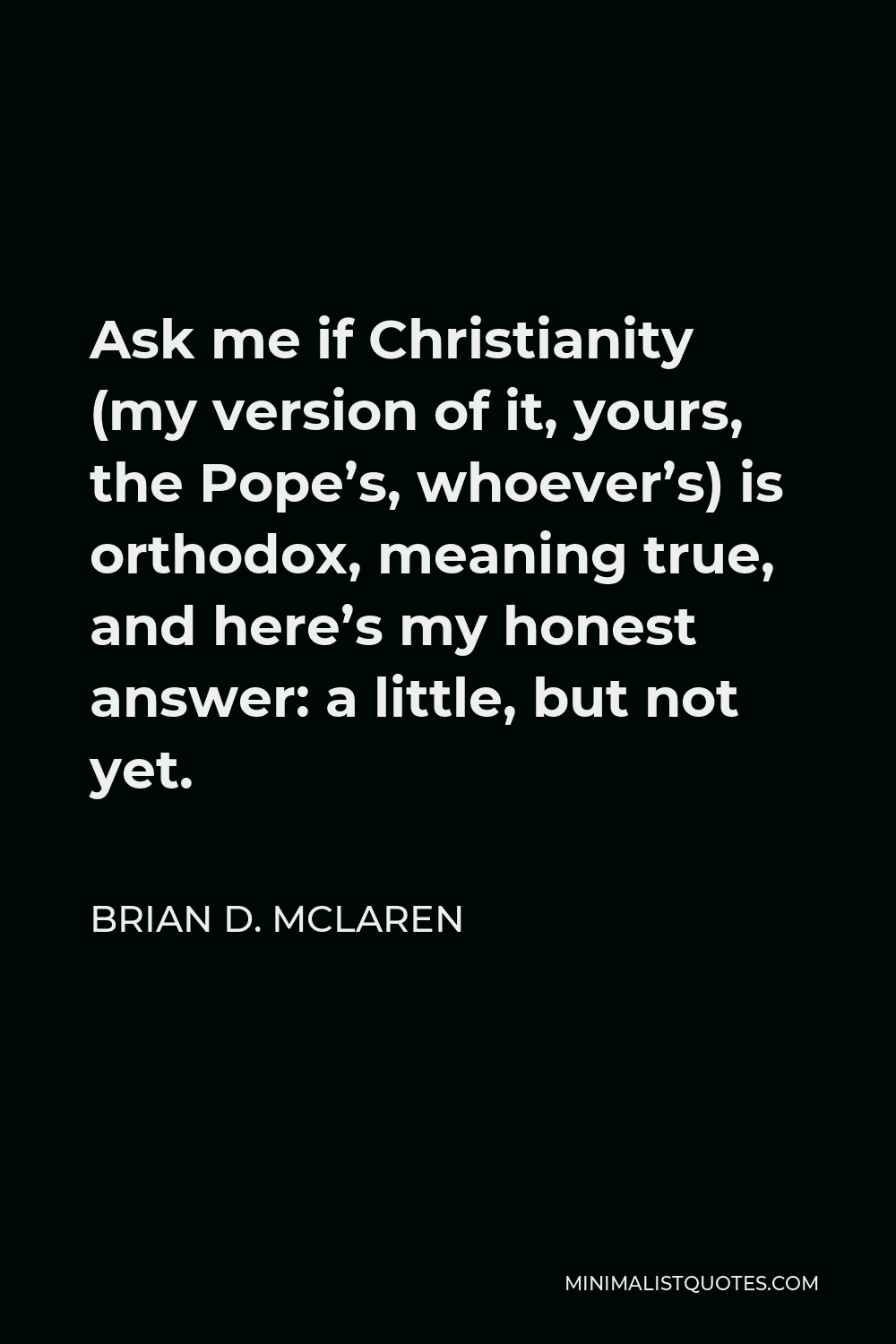
Ask me if Christianity (my version of it, yours, the Pope’s, whoever’s) is orthodox, meaning true, and here’s my honest answer: a little, but not yet.
BRIAN D. MCLAREN -





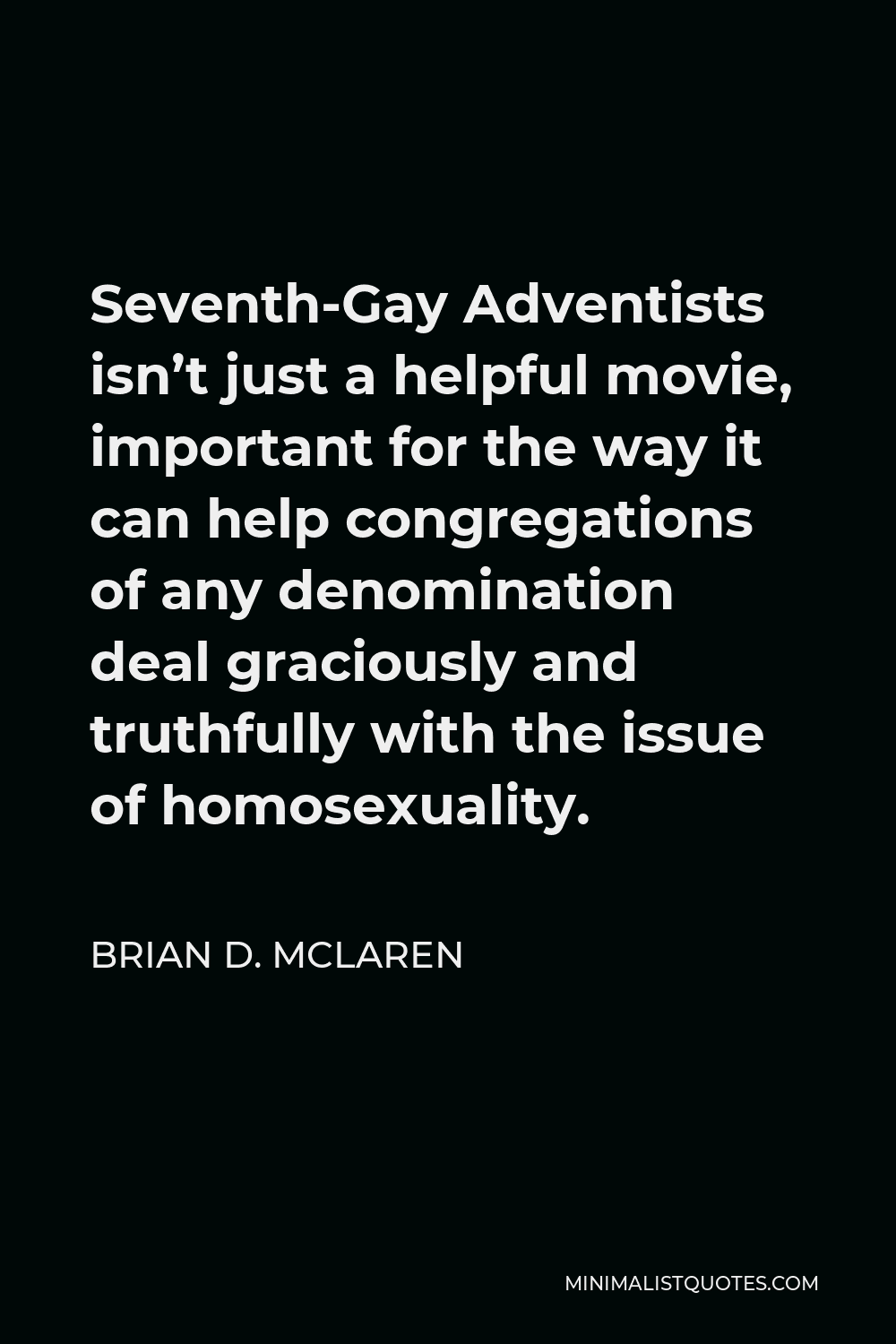
Seventh-Gay Adventists isn’t just a helpful movie, important for the way it can help congregations of any denomination deal graciously and truthfully with the issue of homosexuality.
BRIAN D. MCLAREN -





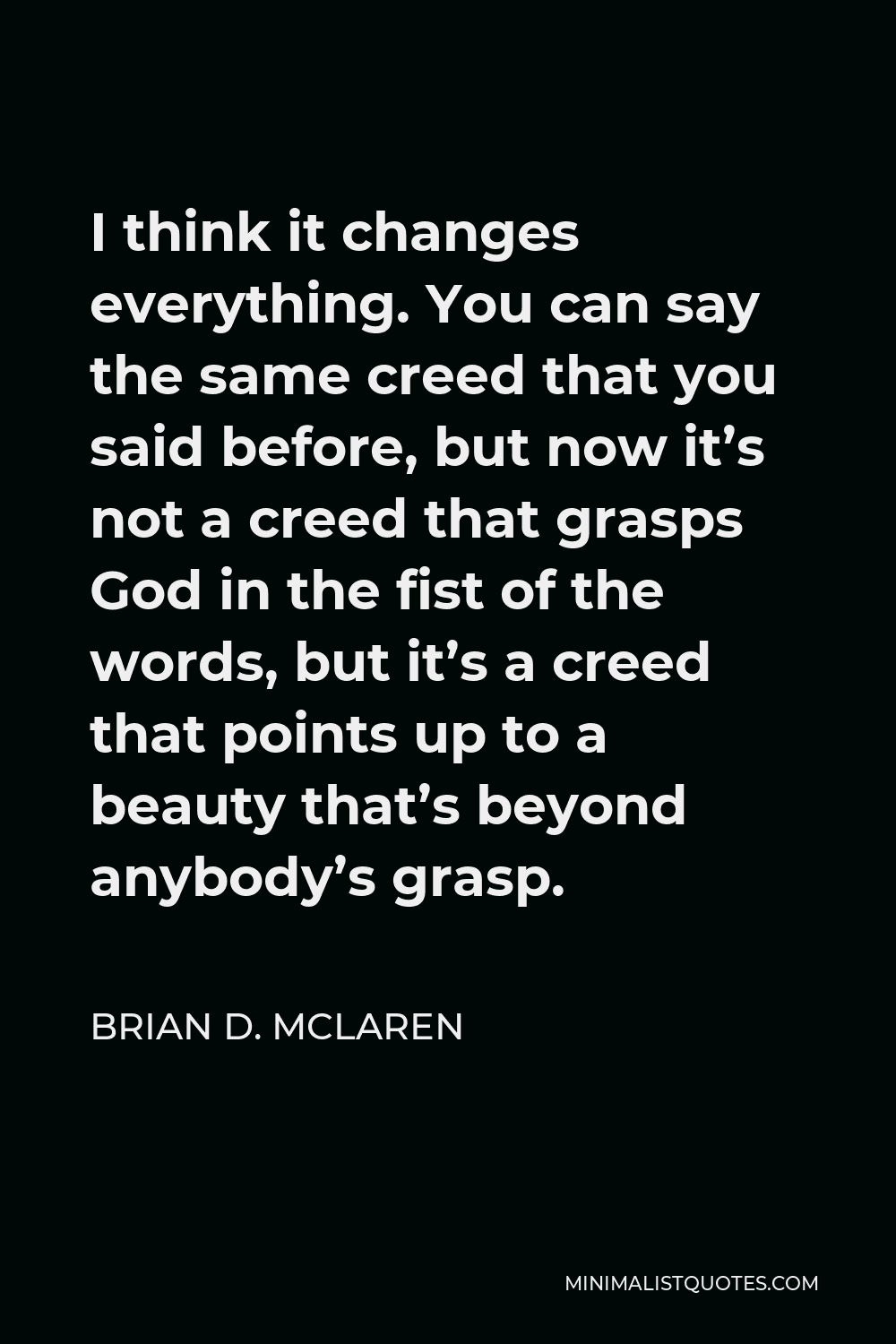
I think it changes everything. You can say the same creed that you said before, but now it’s not a creed that grasps God in the fist of the words, but it’s a creed that points up to a beauty that’s beyond anybody’s grasp.
BRIAN D. MCLAREN -





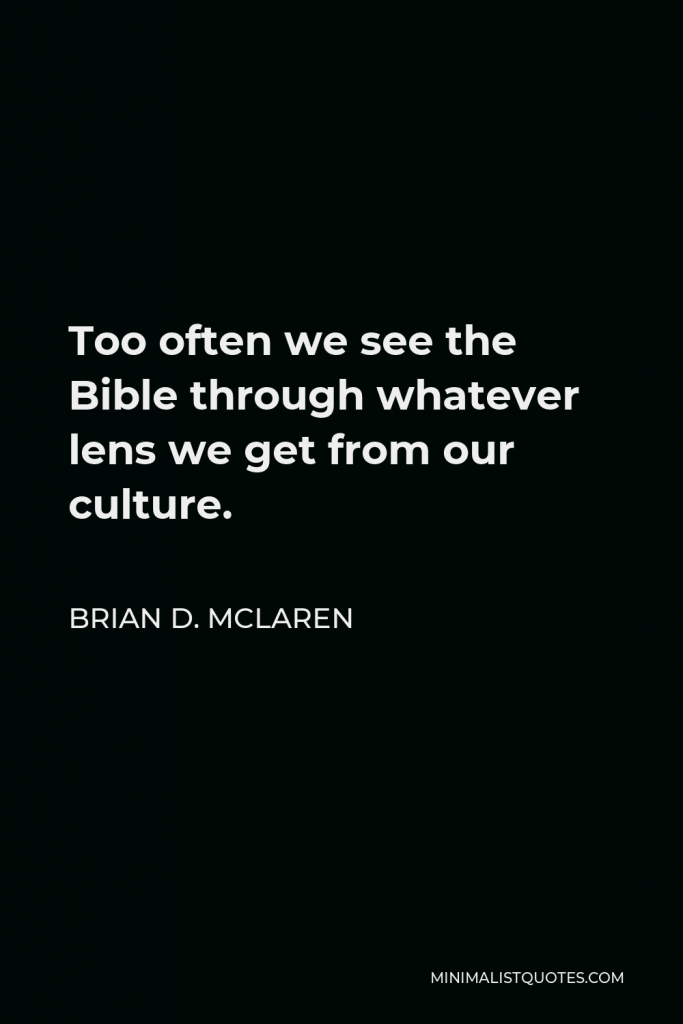

Too often we see the Bible through whatever lens we get from our culture.
BRIAN D. MCLAREN
